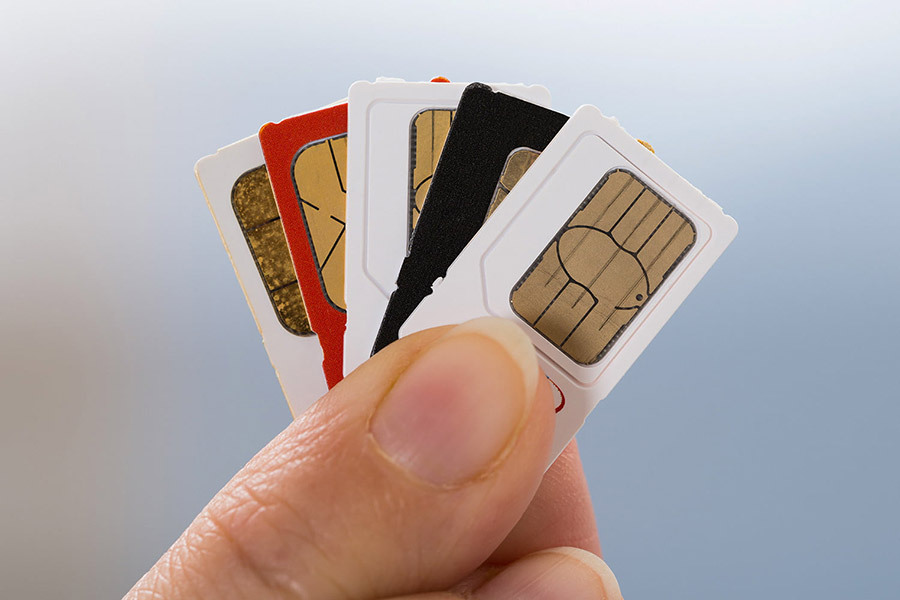privacy (115)
This is a transcription of our interview with Steven Minsky. You can watch the original video interview here or listen to the podcast episode here.
Boris: Welcome to our Interview with Steven Minsky. Steven is a CEO and founder of LogicManager, which is a powerful risk management software with a comprehensive solution that supplies organization with focused and improved risk management processes.
Steven thank you for your time and coming to our interview today.
Steven: Thank you so much i
With many employees forced to work from home, it’s likely you’re facing new compliance risks & information security challenges as hackers strive to take advantage of COVID-19.
To help you mitigate these risks and educate employees who are working remotely, SAI Global has prepared a free 20-minute training exercise focused on data privacy, theft of company assets, misuse of company time, inaccurate reporting, and fraud. Click here to get a sneak peek or download the training to share with your
Identity theft is when a person steals another person’s private and personal information, generally to make money from it. You probably already knew this, but have you heard of synthetic identity theft? This is a bit different.
 With synthetic identity theft, a person creates a new and very fake identity by combining the real information from a person with made-up information. You might not think this is a big deal, but it can be very bad for anyone who has their identity stolen.
With synthetic identity theft, a person creates a new and very fake identity by combining the real information from a person with made-up information. You might not think this is a big deal, but it can be very bad for anyone who has their identity stolen.
Here are three way
 |
|
|
You have likely heard of the dangers of using unsecure public Wi-Fi, so you know that hackers are out there snooping. It is pretty easy to hack into a laptop or mobile device that is on a public Wi-Fi connection with no protection. Hackers can read your emails, steal passwords, and even hijack your website log ins.

Let’s imagine that you are in a local coffee shop with your laptop. All someone has to do is download a wireless network analyzer, which usually has a free trial, and with the right ha
Have you heard of SIM swapping? It’s a new trick that hackers are using to get money and mess up your life.

What is SIM Swapping?
So, what is SIM swapping? It’s when a hacker tricks your cell phone company into thinking that you have activated your SIM card on another phone. In other words, the hackers are taking your phone number and then associating it with a different SIM card. If the switch is a success, your device will be deactivated, and all of your phones, texts, data, and more will come t
 |
|
|
DoorDash has admitted that it has been the victim of a data breach, which has affected about 4.9 million merchants and people.

In a recent blog post, DoorDash announced that it noticed some odd activity early in September from a third-party service. After looking into it, the company found that an unauthorized third party was accessing user data from DoorDash on May 4, 2019. DoorDash immediately took steps to stop any future access and to improve security.
Those who were affected by this breach jo
An alarming new study is out, and if you are a parent, you should take note…children as young as 8-years old are being sexually exploited via social media. This is a definite downturn from past research, and it seems like one thing is to blame: live streaming.

YouTube serves up videos of kids, in clothing, that pedophiles consume and share as if it is child porn. It’s gotten so bad that YouTube has had to disable the comments sections of videos with kids in them.
Apps like TikTok are very popular
WTH Facebook? Generally, I don’t have a problem giving out my SSN. That might seem contrary to the advice I give, but frankly, our SSNs are everywhere and if my insurance company needs it, I’ll generally just question them on it, maybe resist a bit, and if they insist, and I need that insurance policy, I’ll cough it up.

My identity in regards to “new account fraud” is protected via a credit freeze and I also have identity theft protection in place. So between the two, I’m pretty locked down. This
You have probably heard of one data breach after another these days, but this is one that you should really pay attention to: more than 772 million unique emails, along with more than 21 million unique passwords, have been exposed.

Troy Hunt, who runs the website “Have I Been Pwned,” first reported this breach, and he says that a huge file (87 GB) was uploaded to MEGA, a cloud service. This data was then sent to a popular hacking site, and now hackers have access to all of these passwords and ema
When you think of a cybercriminal, you probably picture someone in a black hoodie in a dark room on the dark web, but most cybercriminals are out there in plain sight, including on Facebook.

Talos, a cybersecurity firm, found that people can easily join Facebook groups, and then participate in cybercrime including buying and selling credit card info, obtaining spamming tools, or even getting account logins and passwords. All in all, these groups have almost 400,000 members.
Though that does sound
An unsurprising study was recently released that found even when a portable USB drive is erased, not all of the documents and images are always removed. That, of course, is frightening.

Here’s how the research was done:
Researchers went online to sites like eBay, to second-hand shops, and even auction stores. They bought 200 used USB drives, half from the US and half from the UK. Almost 2/3 of the devices had data on them! This data was, for the most part, personal data, and it can also be used by
No
To sum it up briefly, no, they don’t care, not as a principle in itself. Most ISPs would happily sell your data if they thought it constituted a solid business decision, and it would be unwise to entirely trust an ISP to do right by your data. It’s far too valuable for that, especially when it’s combined with the data and browsing habits of millions of other users. There might be exceptions when it comes to small municipal providers that are run locally, but they often have a different setup,
Do you fancy yourself a spy and wondering how you can monitor someone else’s cell phone? You won’t get that information here, but there is some good info on cell phone monitoring if you keep reading:

The Legalities of Tracking Cell Phones
Generally, it is not legal to monitor a cell phone that does not belong to you. However, generally speaking, and THIS IS NOT LEGAL ADVICE, if the account is under your name or if you have written permission from the person who owns the phone, you can track it.
Why
Are you getting a lot of scammy, spammy telemarketing calls? If you are, you know how annoying they can here. Fortunately, there are some apps out there that can help. Here are a few worth looking into:

CallApp
You can use CallApp to lookup numbers, and then decide if you want to answer it or not. It collects data from users, and then gives you this information when a call comes in. You can get CallApp Crawler for Android phones.
Call Control
This app offers reverse look up, call blocking, and it ca
If you have a teenager, you probably have a battle in play: do you or do you not manage your teens mobile devices. Though some parents see this as an invasion of their child’s privacy,(which, frankly, is stupid) there are many reasons why you should start managing what they are doing online.

Some of these reasons make a lot of sense. Mainly, what your kid does at age 17 and under, is your responsibility, or in essence, your fault if they screw up. If they send a nude photo, that’s child porn, and
USPSID stands for U.S. Postal Service Informed Delivery. It is a good thing to sign up for because it informs you of your expected deliveries.

But there’s a problem: Someone ELSE could pose as you and sign up for this service, getting your mail before you have a chance to.
In fact, it has already happened. Crooks have signed up as other address owners and collected their mail.
This can lead to credit card fraud if some of that mail includes new credit cards or credit card applications.
And what if t
You probably have a few usernames, or you might have just one that you use for every site. Either way, your user names can be used not just to identify you online, but it can also be used to track you and find out information about you. How do people track you based on your user name? They do the following:

They Start with a Google Search
The first thing people do to track your username is do a Google search. You will be amazed by all of the information that is out there. However, Google is not th